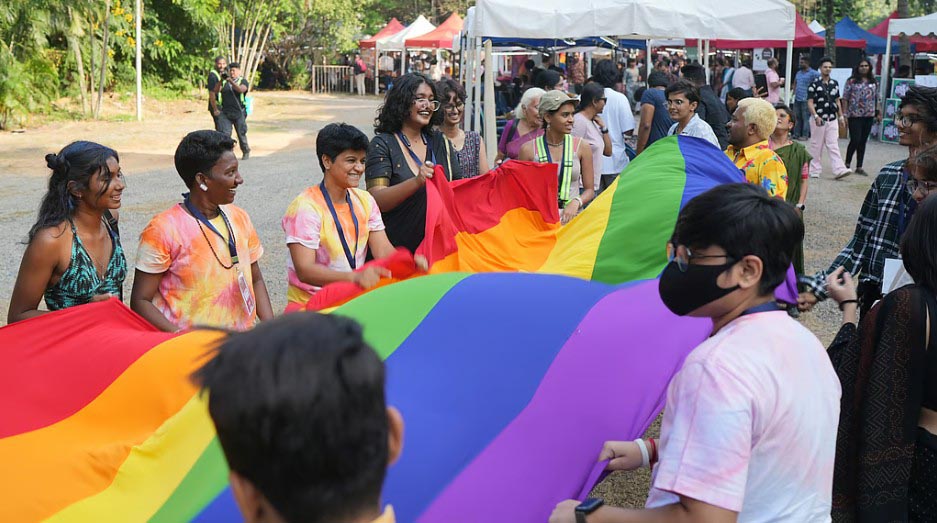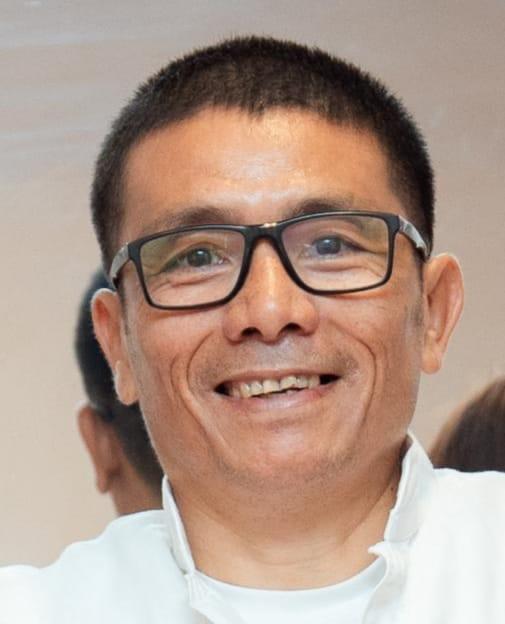In the wake of a prolonged crisis in Manipur that has persisted for over two years, yet another disheartening incident unfolded on May 20, 2025. Army personnel from the Mahar Regiment ordered the covering of “Manipur” signage on a government-owned Manipur State Transport (MST) bus. This bus was ferrying media personnel to Ukhrul to cover the opening of the Shirui Lily Festival, scheduled from May 20 to May 24, 2025. The incident occurred at Gwaltabi and deeply wounded the sentiments of citizens, particularly from the indigenous communities.
Feeling insulted and disrespected, the media team turned back, sparking widespread condemnation. In response, the Coordinating Committee on Manipur Integrity (COCOMI), a prominent civil society organization (CSO), called for a 48-hour general strike beginning at midnight on May 21 and concluding at midnight on May 23.
However, an unsettling event occurred during the strike. On the afternoon of May 23, a group of masked general strike volunteers visited “King Café” in Keishampat Thockchom Leikai, a humble café run by individuals recovering from drug addiction who are striving for reintegration into the mainstream society. Though the café remained closed in observance of the strike, it had slightly opened a side door. The volunteers, using aggressive and derogatory language, harassed the café’s staff before swiftly departing on two-wheelers. A confrontation was narrowly avoided.
I want to clarify that I hold no opposition to the Shirui Lily Festival. I support and respect its cultural importance, especially after its suspension over the past two years due to the ongoing crisis. However, what disturbs me is the double standard in the enforcement of the general strike. While ordinary citizens bore the brunt of the shutdown, certain public officials, including MLAs, were allowed to travel freely to attend the festival. This selective enforcement raises a critical question: was the strike truly “general,” or was it selectively implemented? If so, what meaning does a general strike hold when its execution reflects such bias?
The incident at Gwaltabi was undoubtedly offensive, but what pains me more is the internal contradiction revealed by our own civil society. The act of intimidation at King Café, a space of hope and recovery for former drug users is a betrayal of the very role civil society organizations are supposed to play. Social media was soon awash with reports of other similar acts of vandalism during the strike, further deepening the disillusionment.
CSOs are meant to serve as a bridge between the public and the state, advocating for the rights, needs, and well-being of all sections of society. Some CSOs has indeed made notable contributions — particularly in its campaigns against poppy cultivation and its representations at international forums like the United Nations. However, there remains a glaring silence when it comes to addressing the plight of drug users, the very individuals who, as consumers, are central to the drug issue the organization campaigns against.
Addiction is a health condition, not a moral failing. Yet, over decades, drug users in Manipur have continued to face widespread human rights violations, a trend that has only intensified during the current crisis.
The reality for drug users in Manipur today is deeply troubling, marked by a pattern of systemic abuse and neglect that often goes unnoticed or deliberately ignored. Behind closed doors and on dimly lit streets, stories of suffering unfold; quiet, painful, and recurring.
Many users are forcibly picked up from their homes in the dead of night by so-called moral policing groups, vigilantes, or even private militia. These groups, operating with impunity, often target individuals arbitrarily, demanding money from families in exchange for their release or forcing them into rehabilitation centres without any consent or due process. Families are left helpless, sometimes extorted by private rehabs charging as much as ₹7,500 a month, an amount demanded without any discussion or agreement.
Worse still, amid the ongoing crisis in the state, some users have been recruited by insurgent groups seeking to swell their ranks. These recruits, many of whom are battling untreated addiction, are thrust into chaos with no medical support or preparation, resulting in more harm than healing.
Inside many of the private rehabilitation centres, the situation is grim. These facilities, often poorly regulated, provide substandard care. Patients are tied up during detoxification, left to hallucinate without supervision or medical support. The food is inadequate, the staff untrained, and the infrastructure woefully lacking. Some endure physical abuse; others don’t make it out at all—casualties of custodial neglect.
Even those committed to treatment through medical programs such as Methadone Maintenance Therapy (MMT) are not spared. Armed groups have been known to enter homes at dawn, forcibly removing individuals who are compliant with treatment and contributing meaningfully to their communities. In many cases, family members—wives, children, and parents—are harassed or assaulted for trying to protect their loved ones.
There’s also growing fear among users accessing Opioid Substitution Therapy (OST) with Buprenorphine. Intimidation tactics have escalated, especially when names are lifted from confidential line lists of Targeted Intervention (TI) projects. Rumours spread quickly: those on the list will be picked up next. The result is a suffocating atmosphere of fear, discouraging many from seeking the treatment they need.
Public humiliation has become another brutal tool. Users are paraded, mocked, and coerced into recorded confessions that are later circulated across social media platforms like Facebook and WhatsApp. Their identities are exposed, their dignity stripped away, often for nothing more than a moral show.
In a cruel twist, some users desperate and disillusioned become complicit in the cycle of abuse, trading fellow users to rehabilitation centers in exchange for monetary gain. Meanwhile, vigilantes continue to lurk outside MMT and OST clinics, watching and waiting to drag someone away for forced “treatment.”
For many families, the nightmare doesn’t end at the rehab gates. Parents with limited financial means are often cornered into bargaining for their children’s release or continued care, having never agreed to such confinement in the first place.
This is the grim underside of Manipur’s drug crisis where human rights are trampled in the name of recovery, and where silence and fear allow cruelty to persist unchecked. It is a call for empathy, justice, and reform before more lives are lost in the shadows.
Despite the growing urgency, no CSO has taken a consistent stand or launched sustained advocacy for drug users from a public health and human rights perspective. Beyond isolated efforts in select rehab programs and some public awareness programs a comprehensive and humane strategy remains absent.
The bullying at King Café may seem like a minor incident in the wider context of the state’s troubles, but it symbolizes a deeper neglect. We cannot advocate for justice on one hand while ignoring the basic human dignity of some of the most vulnerable among us on the other.
It is time we reconsider the role of civil society in Manipur not as selective moral arbiters, but as inclusive defenders of equity and compassion. Drug users are not enemies of society; they are a part of it struggling, healing, and hoping. A society that truly seeks justice must fight for all its members, not just the convenient few.
Let us strive for a society where compassion, fairness, and dignity are extended to everyone, especially those whose voices have long been ignored.












